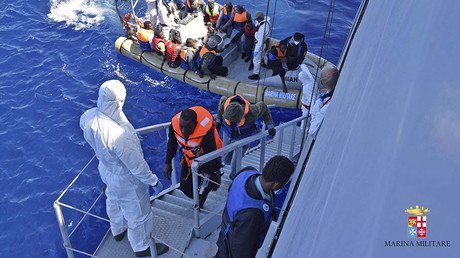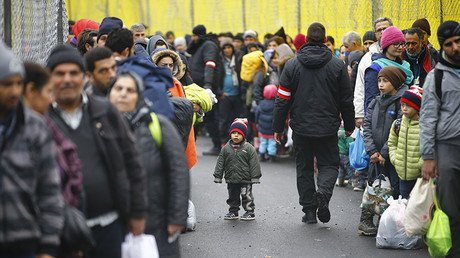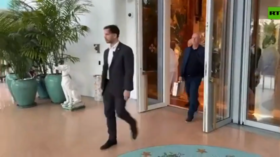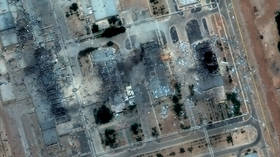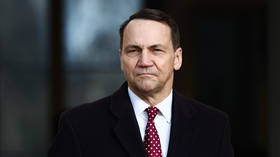‘An enormous mistake’: Italy slams Austrian plans to close part of mutual border
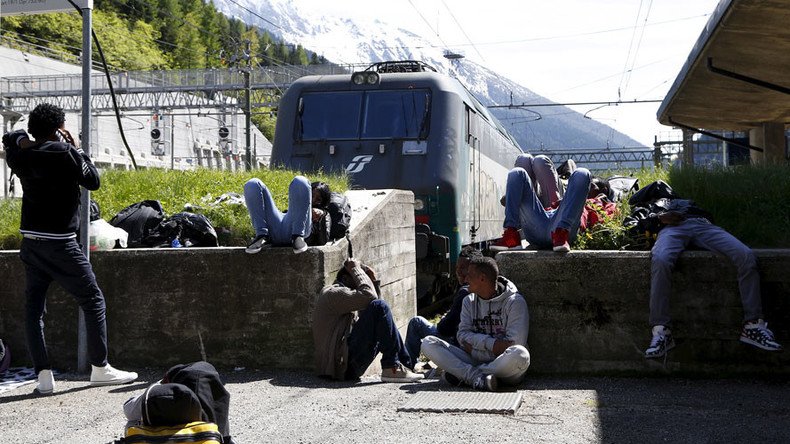
Italy has lashed out at Austria’s plans to build a fence across part of the border separating the two countries. The Italian Prime Minister Matteo Renzi says it would be a “flagrant breach of European rule,” and the policy of being “utterly removed from reality.”
Vienna wants to close the Brenner Pass in the Alps by erecting a fence up to four meters tall in places, for fear of migrants using the crossing to get into Austria. However, the move has incensed Italian politicians, with Italy’s Interior Minister Angelino Alfano calling it “a waste of money.”
Alfano added that the numbers of migrants “do not support” fears that there will be a mass movement of refugees from Italy to Austria, who would use this particular crossing, while any border closures would be “an enormous mistake,” AFP reported.
There are also fears in Italy that the 370-meter long fence could disrupt cross border trade. The Brenner Pass connects Italy with its main trading partner Germany, with an average of 2,500 trucks and 15,000 cars using it every day.
Prime Minister Renzi also slammed Vienna for the proposals, saying that the closing of the pass would be a "flagrant breach of European rules” and “utterly removed from reality.”
However, the Austrian Interior Minister Wolfgang Sobotka defended the plans and said that Vienna is not breaking any EU freedom of movement laws.
"Seeing as there is no European plan, we have to prepare to take measures," Sobotka said.
Reinhard Kreissl, the CEO of the Vienna Center for Societal Security Research, told RT that the new legislation is no more than a “short-sighted reaction” to the recent election results and will not be any help in terms of the migrant crisis.
“The Austrians at the moment are following a very short-sighted populist sentiment… we had the election recently and there was a move towards rightwing populists, and this kind of legislation is simply a reaction to that. But it will not be effective, and it will not solve the problem, and it will also have a negative impact on the overall European strategy to handle this problem,” he said.
Kreissl was speaking in regards to the success of the far-right Freedom Party’s (FPO) candidate Norbert Hofer, who beat his rivals in the first round of presidential vote.
On April, Austria adopted some of the EU’s strictest refugee to try and curb the number of migrants entering the country, which now gives powers to police to directly reject refugees at the border.
The new legislation allows the Austrian government to declare a state of emergency if the number of migrants unexpectedly goes up and becomes “a threat to national security.”
The measures will also oblige migrants to file their asylum applications directly at the border in registration centers which are yet to be built, contrary to a previous practice of letting the refugees into the country. They may be held for up to 120 hours while their application is being verified, local press reported.
Back in April, Austria’s defense minister Hans Peter Doskozil said Vienna was considering taking steps to deploy troops at the Brenner Pass to stem the flow of migrants, because "the EU's external borders are not yet effectively protected," he told Die Welt at the time.
Although there has been a sharp fall in the number of refugees crossing into Austria following the sealing of the Balkan migrant route, there are fears that greater numbers of asylum seekers will look to cross the Mediterranean Sea to land in Italy.
More than 350,000 people have managed to reach Italy by boat from Libya since early 2014. Austria received around 90,000 asylum applications in 2015, which was the second highest in per capita out of countries in the EU.
